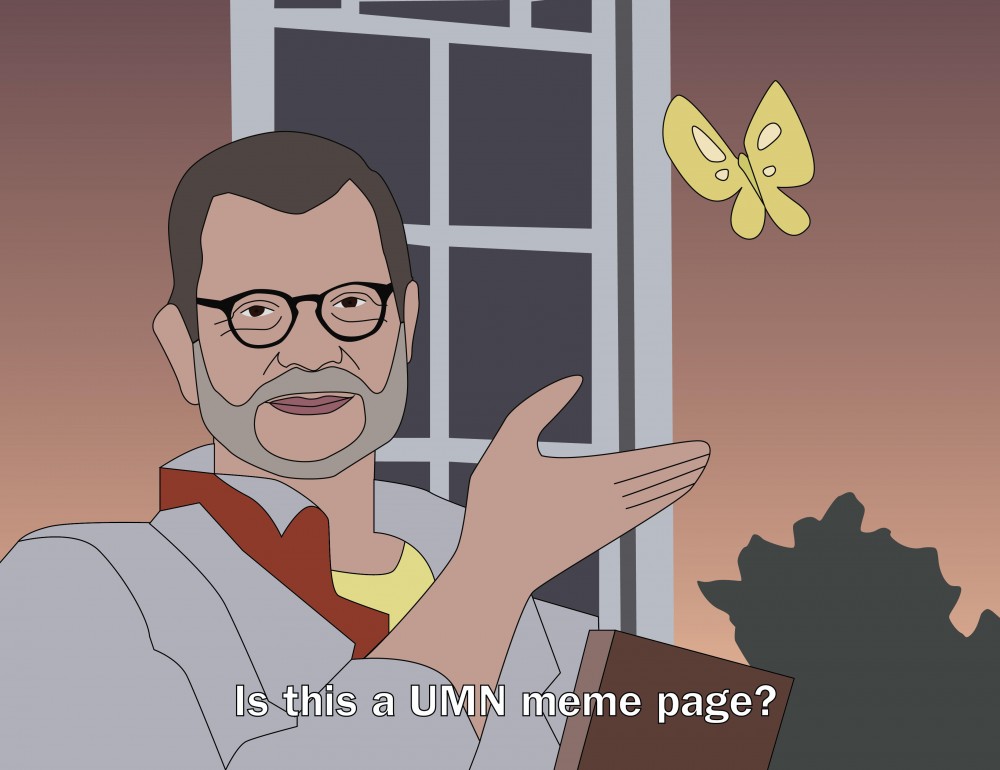Internet memes have become a staple of college social media, and many students have created unofficial meme pages to post content related to the everyday life of college students. The University of Minnesota is no different.
Created “on a whim” in 2016, the Facebook page “UMN Memes for Frozen Northern Teens” has expanded to include over 2,500 members and sparked the creation of a student group this fall. The page, created by University junior Ben Philbin and his friend, aims to build a low-commitment and accessible community for University students.
“When I made the page, I didn’t think it would be this complicated. … I initially thought it was just going to be this funny little thing, that we get 25 members and that’s it, but now it’s a thing that I can put on my resume,” Philbin said.
The new student group, dubbed the Campus Meme Society, meets every Thursday. The group wants to collaborate with groups like the Anthropology Club and an economics club to study the cultural and economic effects of memes, said Andy Columbus, a University freshman and president of the club.
Columbus said he and Philbin started the student group after students expressed interest and because it allows an online group to meet and build connections in person.
“It’s very cool to get to meet all of these people who I haven’t been able to meet in-person before,” Philbin said.
Memes build a sense of community and can connect people within a subculture, according to Bret Bowers, an assistant professor in the English, Rhetoric and Writing Department at the University of Arkansas – Fort Smith, who has written about the cultural effects of memes.
Bowers said his students have sent him memes that relate to him and his class. While memes can focus on specific topics, they can also be used to reflect the general attitude and mood of students on larger campus issues, he said.
The University student group has already used memes to comment on campus issues. In October, the University College Republicans wrote on its Washington Avenue Bridge panel that “the proposed pronoun policy mocks real social issues.” The panel was later vandalized.
In response to the College Republicans mural, the Campus Meme Society — who decided to paint a panel last minute — wrote, “Campus Meme Society mocks real student groups,” Columbus said.
While both the Facebook group and student group try to stay away from posting and discussing political content, Columbus said the group chose the message to show that words have consequences.
Bowers said this is similar to “culture jamming.” Culture jamming is an art movement that emerged in the ’60s and ’70s, where people vandalized billboards to look like real advertisements to critique a social or ethical issue associated with a company.
“Memes provide us simple templates for people to produce really quickly … we see more and more memes being used as a way to critique, but also as a way to show identification,” Bowers said.
Ultimately, the student group and the meme page aim to grow a healthy and supportive community, Columbus said.
“You can always come to us … to make you feel better for 20 seconds … that’s worth it for us,” he said.








